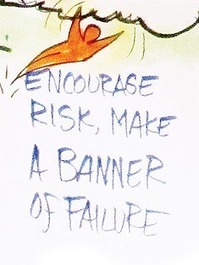Via axelletess
Research and publish the best content.
Get Started for FREE
Sign up with Facebook Sign up with X
I don't have a Facebook or a X account
Already have an account: Login
 Your new post is loading... Your new post is loading...
 Your new post is loading... Your new post is loading...

Beth Kanter's comment,
December 13, 2013 8:49 AM
I was thinking about you yesterday - I'm taking a workshop with Lisa Heft on facilitating emergent experiences.

june holley's comment,
December 13, 2013 8:52 AM
I'm doing a research project on network leadership - have 30 minutes to talk - need your help!!! I'll email

Beth Kanter's comment,
December 13, 2013 9:03 AM
into next week, would love to catch up and hear what you're doing.
|

Thabo Mophiring's comment,
July 13, 2012 10:38 AM
I think failure should be understood in terms of experimentation. The more experiments. the greater the likelihood of overall success, even thought many experiments fail.
The notion of safe-fail environments is key to this. Not sure of 'Fail safely, privately and in isolation' as it reinforces failure as shame thinking. Ideally, Plan to succeed, act to succeed, learn from failure and success. |






























